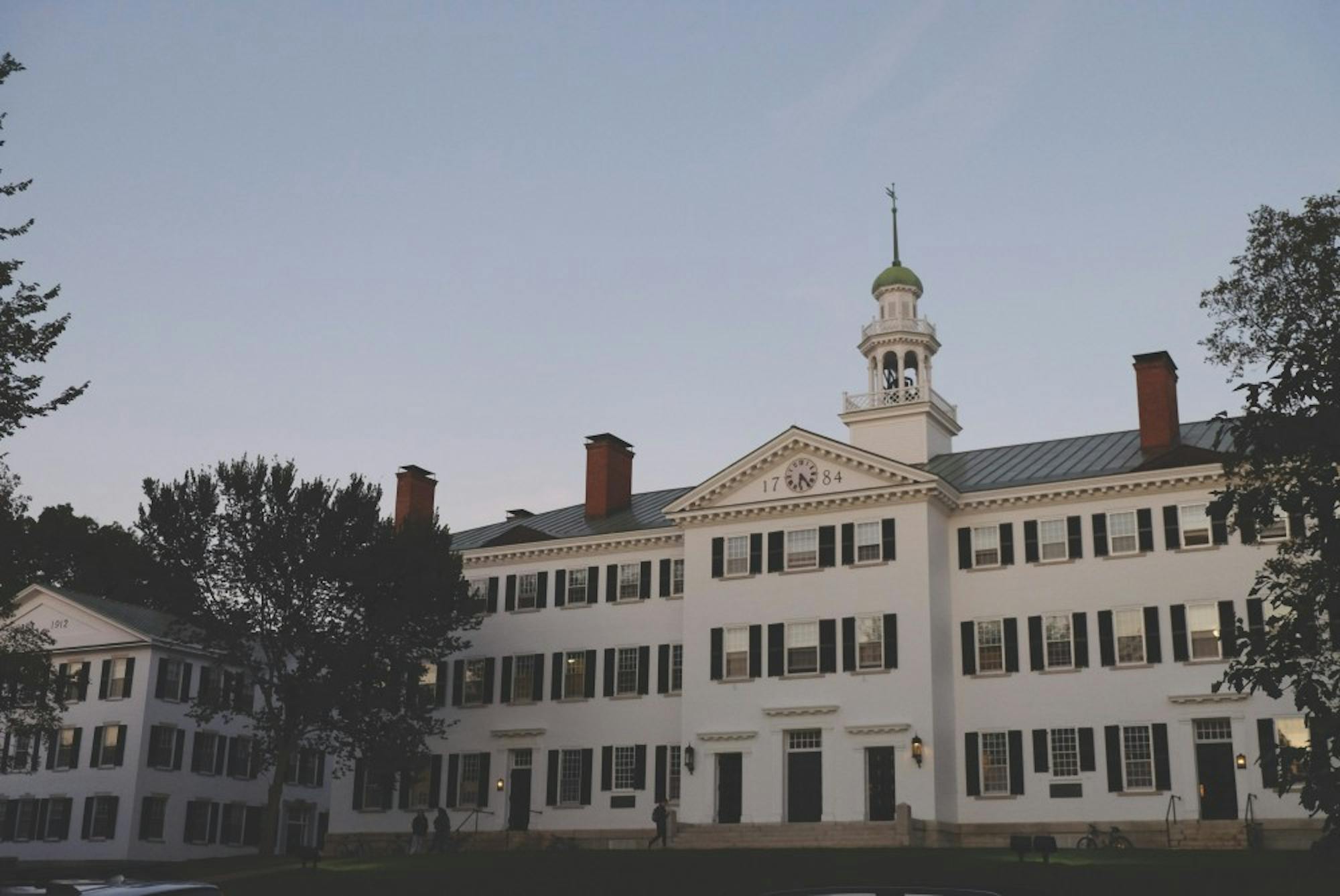The College has joined the National Academies of Sciences, Engineering, and Medicine’s national collaborative on preventing sexual harassment in higher education as a founding member. Announced on April 10, the four-year initiative for higher education institutions aims to increase sexual harassment awareness, foster collaboration on policies and research and create a standard for measuring progress in sexual harassment reduction.
“Dartmouth joined the action collaborative to access emerging research and identify additional data-based, effective strategies for addressing and preventing sexual harassment,” College spokesperson Diana Lawrence wrote in an email statement.
She added that the collaborative works well with the College’s Campus Climate and Culture Initiative, which aims to implement changes recommended by the National Academies’ 2018 report “Sexual Harassment of Women: Climate, Culture, and Consequences in Academic Sciences, Engineering, and Medicine.”
In an email statement, C3I director Theodosia Cook wrote, “I am thrilled that Dartmouth has joined the Action Collaborative because it allows us to connect with our peers to identify best practices based in research that we can apply to support all of our constituents students, staff and faculty in creating a more inclusive environment at Dartmouth.”
The action collaborative first drew membership from 28 founding institutions, but 43 in total have since joined. A meeting was held in March to discuss the details of the collaborative, according to Frazier Benya, senior program officer at the National Academies and director of the action collaborative.
Benya said that in supporting the action collaborative, the National Academies will provide information and recommendations for institutions on preventing sexual harassment on campus and help organize meetings for institutions to share their strategies.
“We have the knowledge and connection with many of the research experts in this base at this point to help bring everyone to the table,” Benya said.
Benya added that the National Academies will help also organize meetings for institutions to share their latest policy implementation results and research findings on sexual harassment prevention.
“Our role, in this case, is to help convene these institutions to bring the research and expertise to the table, to bring key perspectives to the table that need to be involved and to help these institutions make the changes to actually address and prevent sexual harassment,” she said.
Institutions that joined the action collaborative provide “modest” financial support and invest time and efforts to move the action collaborative forward, according to Benya. She said that members of the action collaborative are committed to sharing promising practices and evaluations of sexual harassment prevention and publicizing their participation in the action collaborative to community members.
Benya emphasized that the action collaborative requires institutions to identify a variety of community members to become involved in the initiative, including school leaders; research experts in the field; campus officials who work on promoting diversity and inclusion; and key stakeholders such as students, faculty, staff and individuals who have experienced sexual harassment.
“We ask [institutions] to include individuals who have experienced sexual harassment and have perhaps been through their process for handling sexual harassment, so that these individuals can help inform the work that we are doing as well,” she said.
Benya said that the National Academies works to include a wide range of institutions in the action collaborative, ranging from large public and private institutions to small private liberal arts schools and even some technical schools.
According to Fiona Lee, the University of Michigan associate dean of diversity, equity, inclusion and professional development, Michigan joined the action collaborative to look for solutions to address campus sexual harassment from the National Academies’ report. She acknowledged that although the action collaborative is in an early stage, the school plans to communicate with other members of the collaborative soon to discuss the details.
“It is a very preliminary stage, and we’re going to have another meeting soon to really solidify how the action collaborative works,” Lee said.
Lee noted that Michigan is currently working on publicizing the action collaborative to the school’s community members as well as people outside of the university.
“It’s a very important thing just telling people that this is happening, [that] we are working in this way [and that] collaborating with other universities,” Lee said.
The first meeting for the members of the collaborative will be in June, and the first public event for the collaborative at the end of the year, according to Benya.
“We are welcoming of more institutions that want to join the action collaborative at this point.” Benya said.
Dartmouth general counsel Sandhya Iyer declined to comment.




